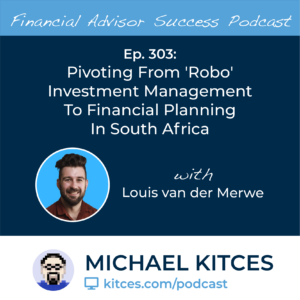In recent years, politically charged topics have become the forefront of news and media, and with the rise of access to digitally distributed media, it has become commonplace for clients to have concerns about the possible impact of political events on their portfolios. These concerns have compelled many clients to reach out to their advisors, urging them to make changes in response to the political environment. And though clients may mean well, making changes to investments based on political events is often not a good idea for the long-term health of their financial plans, as well-designed portfolios are designed to safeguard against market turbulence that might result from those events. Importantly, political topics can often be emotionally charged and tied directly to a client’s core beliefs, which can make it challenging for advisors to convince their clients to stay the course and to reassure them they have an optimal portfolio strategy in place.
In our 97th episode of Kitces & Carl, Michael Kitces and client communication expert Carl Richards discuss how advisors can address clients who want to change their portfolio strategy in response to the political environment and offer ways to communicate with clients about how their current investment strategy is the most optimal plan.
As a starting point, it’s important for advisors to have a defensible portfolio strategy that they can explain to the client, walking them through the investment choices made and why they should stay the course. When having the conversation, listening carefully and empathetically to the client’s apprehensions to understand their motivation is key. Some clients may just want to express their fears to someone who understands their situation and is willing to listen, as the information they are reacting to may be scary for them and the outlook for their future. But when clients feel strongly about taking action to protect their portfolio, the advisor can continue the dialogue – after listening to the client’s concerns – by suggesting a step-by-step review of the financial plan and the client’s initial statement of financial purpose, giving the client and advisor an opportunity to review and reconfirm all the choices that have been made. This allows the advisor to present a logical case that the plan is solid, built to protect against market turbulence, and designed to meet the client’s stated goals. At the same time, this process allows the client to express their concerns and feel heard, and be reminded of the important financial goals they wanted their plan to help them achieve.
Ultimately, the key point is that when clients are overwhelmed with concerns about external events that can impact their investment portfolio, advisors have a valuable opportunity to support their clients and to help them understand how their financial plan is designed to meet their goals even in times of political turmoil. And as new issues arise between meetings with clients, listening and connecting with empathy can give advisors the chance to alleviate their clients’ escalating anxieties by reassuring them that their financial plan is still in a good place!

 Welcome back to the 303rd episode of the Financial Advisor Success Podcast!
Welcome back to the 303rd episode of the Financial Advisor Success Podcast! Welcome back to the 302nd episode of the Financial Advisor Success Podcast!
Welcome back to the 302nd episode of the Financial Advisor Success Podcast!
